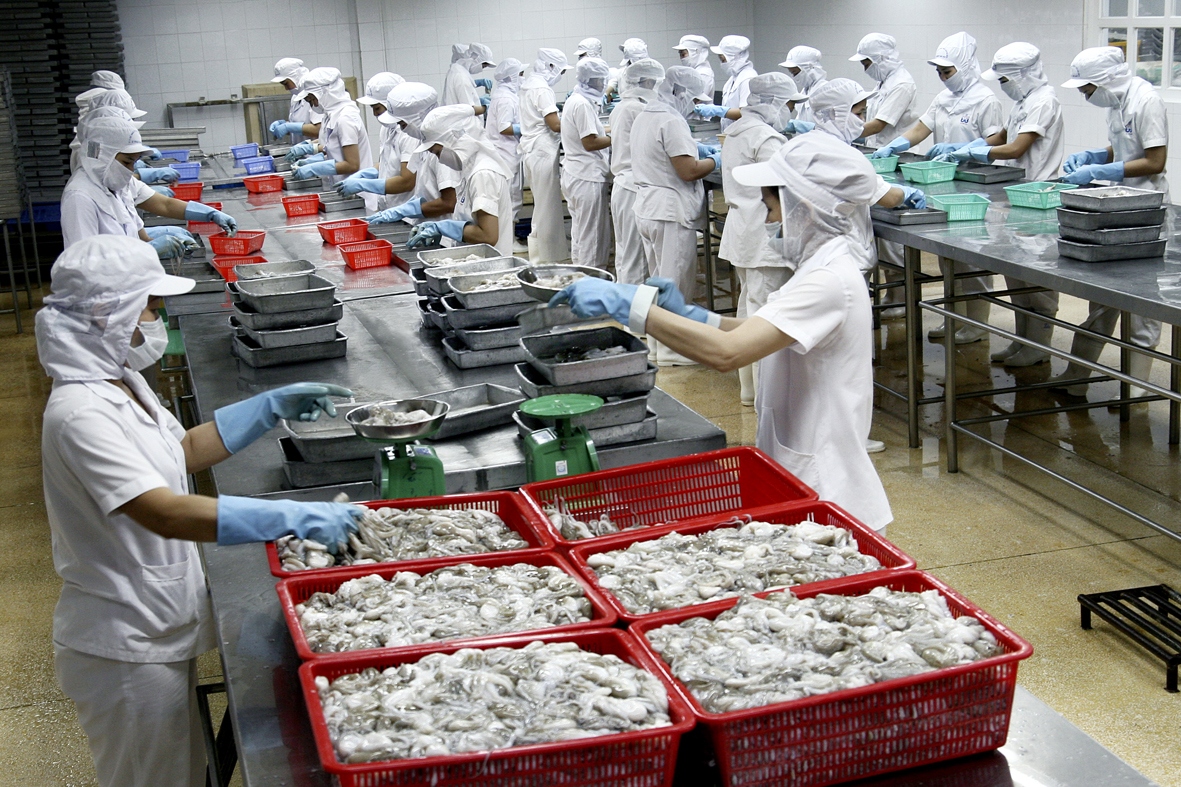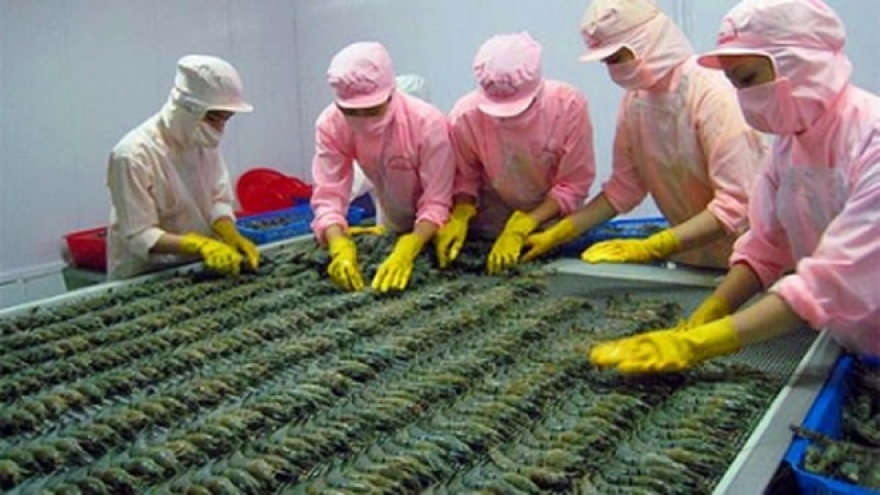Vietnam retains position as leading shrimp exporter to Canada
VOV.VN - The has maintained its place as Canada’s largest shrimp supplier, accounting for 34% of the North American country’s total shrimp import value, according to data released by the Vietnam Association of Seafood Exporters and Producers (VASEP).
At present Canada is the seventh largest importer of Vietnamese shrimp, accounting for 5% of the nation’s total shrimp export value. Indeed, Vietnamese shrimp exports to this market by mid-October recorded an increase of approximately 29% to US$146.5 million from the same period last year.
According to insiders, there remains plenty of room for Vietnamese shrimp to enter the fastidious market due to a range of tax incentives, including the implementation of the Comprehensive and Progressive Agreement for Trans-Pacific Partnership (CPTPP) and the large number of high-income earners.
Currently the North American country mainly imports a variety of different types of fresh frozen shrimps from the nation, such as tiger prawn and white-leg shrimp.
According to the International Trade Center (ITC), Canada is the 13th largest importer of shrimp in the world, accounting for roughly 2% of global shrimp import value.
Since 2014, the country has successfully maintained its leading position as the main supplier of shrimp to this market, followed by India, China, Thailand, and Indonesia.
The Canadian Government is in the process of devising policies aimed at encouraging businesses to diversify their markets and reduce their reliance on imports from the United States. As a result, the nation is swiftly becoming one of the countries that Canadian businesses are keen to promote import-export activities with.
Most notably, Canada is regarded as the gateway to the global market due to its access to priority markets through 14 trade agreements with 51 countries, along with nearly 1.5 billion consumers, whilst also featuring an overall GDP of US$49.3 trillion.
As a means of increasing shrimp export turnover to Canada, firms are advised to meet the requirements set by the CPTPP with regard to human resources, production chains, food safety, and hygiene in order to enhance competitiveness within the market.



